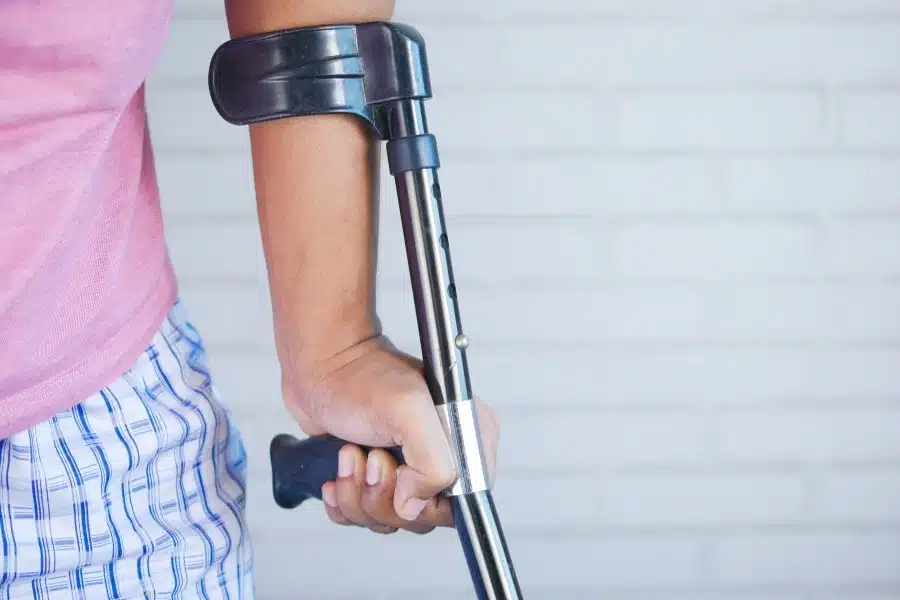
Being involved in an accident that causes personal injury can be an extremely distressing experience. Not only this, but the long-term effects of that accident can cause problems for years to come. Learn how to deal with the chronic injuries that resulted from the accident you were in by identifying the type of injury you have and the ways in which you can manage it.
Common Types Of Chronic Injuries
There are three primary types of chronic injures that a person needs to be aware of if they are trying to figure out what is afflicting them:
Nerve Damage
On average, one in ten adults will experience neuropathic pain in their life, with the symptoms potentially continuing for years or never going away at all. Damage to the nervous system can occur in three main ways: mononeuropathy, polyneuropathy, and neuritis. The first of those three refers to when a single nerve is damaged, the second refers to when a group of nerves are damaged, and the third occurs when inflammation impacts a nerve.
Sensitivity, burning sensations, throbbing pain, uncontrollable twitching, and even paralysis are all signs that nerve damage may have occurred. Any type of traumatic physical incident can cause nerve damage, and the extent to which those nerves are damaged depends on the severity of the accident.
Muscular Pain
Myofascial pain syndrome is the clinical term for chronic pain in the muscles and occurs when pressure on sensitive points in your muscles causes pain. Major physical stress on the muscle groups of the body can cause certain parts to shift that then place pressure in places they aren’t supposed to in the future. This can end up causing chronic muscular pain that a person needs to live with and is unable to fix in most cases.
Traumatic Brain Injuries (TBI)
Finally, the most serious type of long-term problem that can occur as a result of an accident is a traumatic brain injury. The causes for a traumatic brain injury can range, but the most common are forceful bumps, blows, or jolts to the head. Traumatic brain injuries can be caused by penetrating injuries, which pierce the skin, or by non-penetrating injuries, such as hitting your head in a car accident. Long term effects of these types of injuries can include amnesia, headaches, general pain in the head, brain damage, and more.
3 Tips For Managing Chronic Pain
Learning how to manage your chronic pain can seem like a challenge, but these following three strategies are your best bet at seeking relief from the pain you feel:
1. Speak with your primary care physician
At the end of the day, your doctor knows best and you should consult your PCP and inform them of any symptoms you are experiencing. They may be able to offer a consultation and diagnose what you are experiencing, which can then lead to medication that can alleviate some symptoms you are experiencing. Be aware, however, that a doctor may not be able to diagnose some of your symptoms if they are quite common.
2. Look into physical therapy
Your PCP may recommend that you get in touch with a physical therapist if you are living with chronic muscular pain. This therapist may be able to help you work through pain you are experiencing in your joints, muscles, and even parts of your nervous system. Overall, physical therapists specialize in rehabilitation for those who have suffered some sort of accident with an injury.
3. Contact your lawyer
While it may not be the first thought on your mind, contacting an accredit lawyer right away may be the best course of action. If the injuries you are suffering from resulted from an accident that another person caused, you may be entitled to compensation. A personal injury lawyer specializing in chronic pain may be able to help review your case and see if you deserve compensation.
Receive Compensation For Your Accident Today
Finding yourself injured as a result of an accident is frustrating, but having chronic injuries emerge as a result can be infuriating. If the accident you were in was caused by another person’s actions, you have a right to naturally be upset based on the injuries you experienced. Rather than settling for living with the long-term effects of those injuries, contact a lawyer to see if there is some way to receive financial compensation for those chronic injuries.








